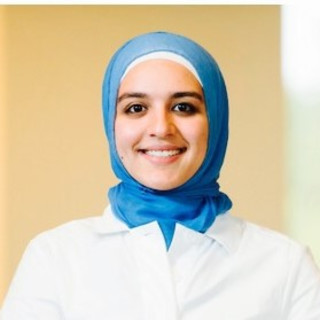
The sterile environment of operating rooms has a culture of its own. Everyone is dressed similarly with their mint green scrubs and bouffants or surgical caps. Everyone has a purpose in managing patient care, and everyone just easily blends in. The light-colored walls and the open, airy hallways are not unique, but rather very “homely” from hospital to hospital. Standardized patient care at its finest.
The individuality of each health care professional comes from what is easily visible besides their scrubs — their choice in shoes, any visible jewelry or watches, and how they choose to display their ID card. Those are, at their core, the way identity shows when walking through the halls of the O.R. wing.
Unless…
Unless you’re someone who doesn’t fit as easily into the O.R. environment. Be it because your dark skin stands out against the light-colored walls and light-colored scrubs, or because the hijab covering your hair and neck is unusual — these identifying features tell others about yourself more than any shoe or jewelry choice would.
But being “different-looking” in the O.R. can be daunting sometimes. The first time I was in the O.R. as a medical student scrubbing in, I remember feeling as though I stood out like a sore thumb. With my hijab on, my long sleeve scrub jacket over my scrub top, and a surgical hood covering my hijab, I believed that everyone was staring at me. Every inch of me was covered except for my face, and though this isn’t unusual in the O.R., I had never seen anyone like me before in this environment.
Not having a role model or a mentor who looked like me was discouraging at first, until I realized that I have the ability to be that for someone else. With that, I felt proud of my hijab, who I was, and how different I looked in the O.R., because it sparked meaningful conversations about my identity.
As America becomes more diversified and truly exemplifies the melting pot that we are known for, medical schools are slowly but surely following that trend. This means, soon, residency programs will follow suit, and the pool of attending physicians will (hopefully) be as diverse as the American population it serves.
Deena Kishawi is a second year medical student at Stritch School of Medicine at Loyola University Chicago. She strives to create more welcoming environments for underrepresented minorities. Check out the work she does at HijabInTheOR.com.







